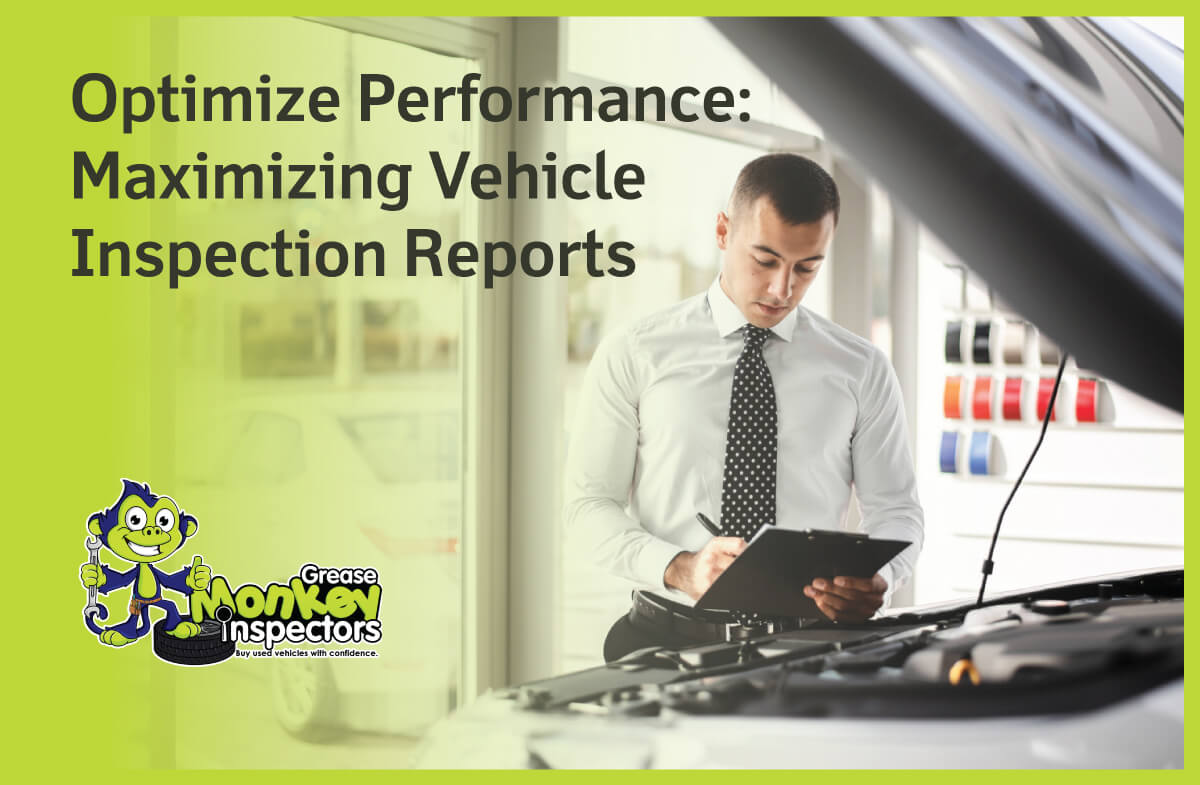In the world of automobiles, safety and reliability are paramount. Whether you’re a commercial operator or an individual vehicle owner, ensuring that your vehicle is in top condition is crucial for both safety and compliance. One of the most essential tools in this regard is the vehicle inspection report (VIR). These reports not only help identify potential issues but also serve as a vital document for insurance, regulatory compliance, and maintenance planning. In this blog post, we’ll explore the importance of vehicle inspection reports, how to maximize their effectiveness, and why they are indispensable for vehicle owners in Ontario and beyond.
Understanding Vehicle Inspection Reports
Before delving into optimization strategies, let’s first understand what a vehicle inspection report entails. A vehicle inspection report is a comprehensive document that details the condition of a vehicle after a thorough inspection. It typically includes information such as the vehicle’s identification details, inspection date, findings, recommendations, and the inspector’s signature. These reports can vary in scope and detail depending on the type of inspection and regulatory requirements.
In Ontario, vehicle inspection reports play a crucial role in various contexts, including automobile insurance, regulatory compliance, and safety. Whether it’s the daily vehicle inspection report required for commercial vehicles or the annual inspection report mandated for all vehicles, these documents serve as a snapshot of a vehicle’s condition at a given point in time.
Maximizing the Effectiveness of Vehicle Inspection Reports
Now that we understand the significance of vehicle inspection reports, let’s explore how to optimize their performance:
1. Regular Inspections: Regular inspections are the cornerstone of effective vehicle maintenance. Whether it’s a daily vehicle inspection report for commercial fleets or periodic checks for personal vehicles, staying proactive can help identify issues before they escalate.
2. Thorough Documentation: Accuracy and completeness are essential when it comes to vehicle inspection reports. Ensure that all relevant details are recorded accurately, including any defects or deficiencies observed during the inspection.
3. Digital Solutions: Embracing digital solutions can streamline the inspection process and enhance the reliability of inspection reports. Digital platforms and mobile apps offer features such as digital checklists, photo documentation, and real-time reporting, making it easier to capture and share inspection data.
4. Training and Certification: Invest in training for inspectors to ensure consistency and competence in the inspection process. Certified inspectors are better equipped to identify potential issues and provide accurate recommendations, enhancing the overall effectiveness of inspection reports.
5. Integration with Maintenance Systems: Integrate inspection reports with your vehicle maintenance system to facilitate proactive maintenance scheduling. By linking inspection findings with maintenance tasks, you can ensure timely repairs and minimize downtime.
6. Compliance with Regulations: Stay updated on regulatory requirements pertaining to vehicle inspections and ensure compliance at all times. Failure to adhere to regulatory standards can result in fines, penalties, and even suspension of vehicle operations.
7. Documentation Management: Implement robust documentation management practices to organize and store inspection reports securely. Whether it’s maintaining physical records or leveraging cloud-based storage solutions, easy access to historical inspection data is essential for auditing, reporting, and decision-making.
Why Vehicle Inspection Reports Matter in Ontario
In Ontario, vehicle inspection reports are particularly significant due to stringent regulatory requirements and insurance mandates. The Ontario Automobile Insurance Motor Vehicle Inspection Report (MVIR) is a key document required for vehicle registration and insurance purposes. This report verifies that a vehicle meets safety standards and is fit for the road, helping to mitigate risks and ensure road safety.
Commercial operators in Ontario are also subject to daily vehicle inspection report requirements, which mandate regular inspections of commercial vehicles to identify safety issues and defects. These reports play a crucial role in maintaining the safety of commercial fleets and complying with regulatory standards.
Conclusion
In conclusion, vehicle inspection reports are invaluable tools for ensuring the safety, reliability, and compliance of vehicles. By optimizing the effectiveness of these reports through regular inspections, thorough documentation, digital solutions, training, and compliance with regulations, vehicle owners can enhance safety standards and minimize risks. Whether you’re in Ontario or elsewhere, prioritizing vehicle inspections is essential for safeguarding lives and property on the road.
For comprehensive vehicle inspection services and packages specified to your needs, explore our Inspection Packages today!

